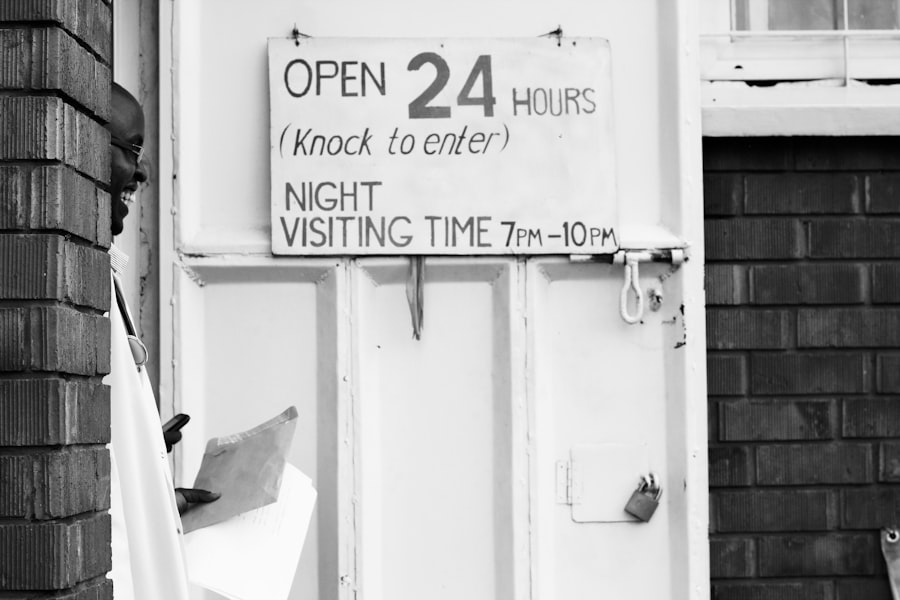In recent years, the landscape of pharmaceuticals in Norway has undergone significant transformation, particularly with the increasing prominence of generic medicines. These alternatives to brand-name drugs have become a cornerstone of the healthcare system, providing patients with more accessible and affordable treatment options. As the Norwegian government continues to promote the use of generics, it is essential to understand their role in the healthcare system, the regulatory framework that governs them, and their impact on both patients and healthcare providers.
The rise of generic medicines in Norway is not merely a trend but a reflection of a broader commitment to ensuring that all citizens have access to necessary medications without the burden of exorbitant costs. This commitment aligns with Norway’s universal healthcare model, which aims to provide high-quality medical care to everyone, regardless of their financial situation. As we delve deeper into the world of generic medicines, we will explore their definition, approval processes, cost implications, and the perceptions surrounding them within Norwegian society. Book your 1-hour strategy session with Norway Relocation Group.
Summary
- Generic medicines in Norway offer significant cost savings compared to brand-name drugs
- The approval process for generic medicines in Norway involves demonstrating bioequivalence to the original drug
- Healthcare professionals play a crucial role in promoting and prescribing generic medicines in Norway
- The quality and safety of generic medicines in Norway are rigorously regulated and monitored
- The future of generic medicines in Norway looks promising, with potential for further cost savings and increased availability
What are Generic Medicines?
Generic medicines are pharmaceutical products that are equivalent to their brand-name counterparts in terms of dosage form, strength, route of administration, quality, and intended use. They contain the same active ingredients as the original branded drugs but are marketed under their chemical names or a different brand name once the patent on the original drug expires. This means that generic medicines can offer the same therapeutic benefits as their branded versions while often being sold at significantly lower prices.
The development of generic medicines plays a crucial role in fostering competition within the pharmaceutical market. When patents on brand-name drugs expire, multiple manufacturers can produce and sell generics, leading to price reductions and increased availability for patients. This competition not only benefits consumers but also encourages innovation within the pharmaceutical industry as companies strive to develop new and improved medications.
The Approval Process for Generic Medicines in Norway

In Norway, the approval process for generic medicines is rigorous and closely regulated by the Norwegian Medicines Agency (NoMA). Before a generic drug can be marketed, it must demonstrate bioequivalence to the original branded product. This means that the generic must show that it delivers the same amount of active ingredient into the bloodstream at the same rate as the original drug.
To achieve this, manufacturers must conduct clinical studies that adhere to strict guidelines set forth by NoMA. Once bioequivalence is established, manufacturers submit a marketing authorisation application to NoMThis application includes comprehensive data on the drug’s formulation, manufacturing processes, and quality control measures. The agency thoroughly reviews this information to ensure that the generic medicine meets all safety and efficacy standards before granting approval.
This stringent process ensures that patients can trust that generic medicines are just as safe and effective as their branded counterparts.
The Cost Savings of Generic Medicines
One of the most significant advantages of generic medicines is their potential for cost savings. In Norway, where healthcare costs can be substantial, generics provide an essential means of reducing expenses for both patients and the healthcare system as a whole. By offering lower-priced alternatives to brand-name drugs, generics help alleviate financial burdens on individuals who may otherwise struggle to afford necessary medications.
The cost savings associated with generic medicines extend beyond individual patients; they also benefit the national healthcare budget. With increased utilisation of generics, Norway can allocate resources more efficiently, allowing for investment in other critical areas of healthcare. This shift not only enhances patient access to medications but also contributes to a more sustainable healthcare system overall.
The Availability of Generic Medicines in Norway
The availability of generic medicines in Norway has improved significantly over recent years. As more patents expire and new generics enter the market, patients have greater access to a wider range of treatment options. Pharmacies across the country are increasingly stocking generic alternatives, making it easier for patients to obtain their medications without delay.
Moreover, the Norwegian government actively encourages the use of generics through various initiatives and policies aimed at promoting their availability. For instance, healthcare providers are often incentivised to prescribe generics when appropriate, further enhancing their presence in pharmacies and hospitals. This proactive approach ensures that patients can access affordable medications while also supporting a competitive pharmaceutical market.
The Quality and Safety of Generic Medicines

Concerns about the quality and safety of generic medicines are common among patients and healthcare professionals alike. However, it is essential to understand that generic medicines undergo rigorous testing and regulatory scrutiny before they reach the market. In Norway, NoMA’s stringent approval process ensures that generics meet the same high standards for quality and safety as brand-name drugs.
Manufacturers must adhere to Good Manufacturing Practices (GMP) throughout the production process, ensuring that each batch of medication is consistently produced and controlled according to quality standards. Additionally, post-marketing surveillance systems are in place to monitor the safety of generic medicines once they are available to patients. This ongoing oversight helps identify any potential issues early on, ensuring that patients can trust in the safety and efficacy of their medications.
The Role of Healthcare Professionals in Prescribing Generic Medicines
Healthcare professionals play a pivotal role in promoting the use of generic medicines within Norway’s healthcare system. Physicians, pharmacists, and other practitioners are often at the forefront of discussions regarding medication options for their patients. By understanding the benefits and efficacy of generics, healthcare professionals can make informed decisions when prescribing medications.
Moreover, it is essential for healthcare providers to communicate effectively with patients about the advantages of choosing generic alternatives. Educating patients about how generics work and their equivalence to brand-name drugs can help alleviate concerns and foster acceptance. When healthcare professionals advocate for generics, they contribute not only to individual patient health but also to broader public health goals by promoting cost-effective treatment options.
The Perception and Acceptance of Generic Medicines in Norway
The perception of generic medicines among Norwegian patients has evolved over time. Initially met with skepticism by some individuals who were concerned about efficacy and safety, there has been a notable shift towards greater acceptance as awareness has increased. Educational campaigns led by healthcare professionals and government initiatives have played a crucial role in dispelling myths surrounding generics.
Today, many Norwegians recognise that generic medicines offer a viable alternative to brand-name drugs without compromising quality or effectiveness. This growing acceptance is reflected in increased utilisation rates of generics across various therapeutic areas. As patients become more informed about their options, they are more likely to embrace generics as part of their treatment plans.
The Regulations and Policies Surrounding Generic Medicines in Norway
Norway’s regulatory framework for generic medicines is designed to ensure patient safety while promoting competition within the pharmaceutical market. The Norwegian Medicines Agency (NoMA) oversees all aspects of drug approval and monitoring, ensuring that both brand-name and generic medicines adhere to strict quality standards. In addition to regulatory oversight, various policies have been implemented to encourage the use of generics within the healthcare system.
For instance, reimbursement policies often favour generic prescriptions over brand-name drugs, incentivising both healthcare providers and patients to opt for more affordable alternatives. These regulations not only support patient access to medications but also contribute to a more sustainable healthcare system by reducing overall costs.
The Future of Generic Medicines in Norway
Looking ahead, the future of generic medicines in Norway appears promising. As pharmaceutical innovation continues to advance and more patents expire, an increasing number of generics are expected to enter the market. This influx will likely enhance competition further, leading to even greater cost savings for patients and the healthcare system alike.
Moreover, ongoing efforts to educate both healthcare professionals and patients about the benefits of generics will continue to foster acceptance and utilisation rates. As awareness grows regarding the safety and efficacy of these medications, it is anticipated that more individuals will embrace generics as a standard part of their treatment regimens.
The Benefits and Importance of Generic Medicines in Norway
In conclusion, generic medicines play an integral role in Norway’s healthcare landscape by providing affordable alternatives to brand-name drugs while maintaining high standards for quality and safety. Their increasing availability has transformed patient access to essential medications, contributing significantly to public health outcomes. As we move forward into an era where healthcare costs continue to rise, embracing generic medicines will be crucial for ensuring that all Norwegians can access necessary treatments without financial strain.
The collaborative efforts between healthcare professionals, regulatory bodies, and policymakers will be vital in promoting generics as a cornerstone of Norway’s commitment to universal healthcare. For those interested in learning more about this vital aspect of Norwegian healthcare or seeking further education on related topics such as language skills necessary for navigating medical discussions or understanding pharmaceutical terminology in Norwegian, consider enrolling in courses at NLS Norwegian Language School. Their tailored programmes can help you gain proficiency in Norwegian while deepening your understanding of important subjects like healthcare and pharmaceuticals in Norway.
Speak Norwegian with confidence. Enroll in a class at the NLS Norwegian Language School now.

